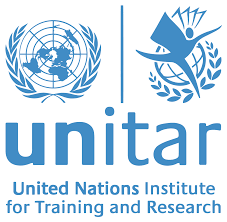2023 United Nations UNITAR Developing Essential Digitals Skills Program For Women and Youths
UNITAR Developing Essential Digitals Skills Program is established to Strengthening Food Security, and Supporting Climate-Resilient Economies.
Women and youth in 24 countries in Africa are invited to apply to the UNITAR programme Developing Essential Digital Skills for Women and Youth in Africa: Enhancing Employment Opportunities and Livelihood Development in the Digital Economy.
Over six months, participants will build high-demand digital skills to increase employment and income-generating potential to develop socially responsible digital start-ups and improve leadership and entrepreneurial skills to drive change and innovation in their communities.
Summary
- Host: United Nations | Japan Government
- Category: Training | Fellowships
- Eligible Countries: 24 African Countries
- Reward: Full Sponsorship
Details:
The United Nations Institute for Training and Research (UNITAR) provides innovative learning solutions to individuals, organizations and institutions to enhance global decision-making and support country-level action for shaping a better future.
UNITAR was created in 1963 to train and equip young diplomats from newly-independent UN Member States with the knowledge and skills needed to navigate through the diplomatic environment.
Over the years, UNITAR has acquired unique expertise and experience in designing and delivering a variety of training activities.
Requirements:
The programme will prioritize participants from 24 African counties, namely:
Botswana, Burundi, Eritrea, Eswatini, Ethiopia, Gambia, Ghana, Kenya, Lesotho, Liberia, Malawi, Namibia, Nigeria, Rwanda, Seychelles, Sierra Leone, Somalia, South Africa, South Sudan, Sudan, Tanzania, Uganda, Zambia, Zimbabwe
In particular, we are looking for women and youth who:
- Are keen to learn by doing, with a passion for development and information technologies.
- Are between 18 and 35 years old, however, women of all ages, including those over 35, are encouraged to apply, as their unique experiences and skills are valued.
- Have good oral and written English communication skills.
- Are computer literate and have access to a laptop/internet.
- Are interested in leveraging opportunities brought by digital technology.
- Are passionate to succeed and make a positive impact on their communities.
- Are committed to completing the Programme.
- Interested to keep their tech skills up to date or break into a tech career.
- Can provide a recommendation letter from an individual with verifiable credentials.
- Are (preferably) university graduates and are tech-savvy.
Duration and Reward
- Digital infrastructure & connectivity
- Digital innovation and transformation
- Frontier technologies including AI, big data, robotics, blockchain, IoT, and VR
- Software development
- Cybersecurity & Data protection
- Digital media
- Project management
- Digital Inclusion and the digital Gender divide
- Digital entrepreneurship
- Training of trainers
- Training for coaches
- Leadership and locally-led ecosystem building
A certificate of completion will be issued by UNITAR to all participants who complete the course-related assignments and assessments.
The programme is offered free, thanks to the generous support of the Government and People of Japan.
Program Phase
The programme is divided into three phases:
- Phase I – Online Training (September to December 2023): Participants will complete self-paced e-modules on a digital learning platform, join webinars and receive online coaching and mentoring support.
- Phase II – Self-led Projects and Virtual Boot Camp (December 2023 to January 2024): The participants will be selected from Phase I based on their performance including their assignments and presentations. Self-led projects and virtual boot camps will allow participants to apply their skills and knowledge in addressing a development challenge.
- Phase III – Sustainability and Community Leadership Training (February 2024): Participants who reach phase III will receive additional training on community-building and leadership skills and create a strong network of trainers for future cohorts.




